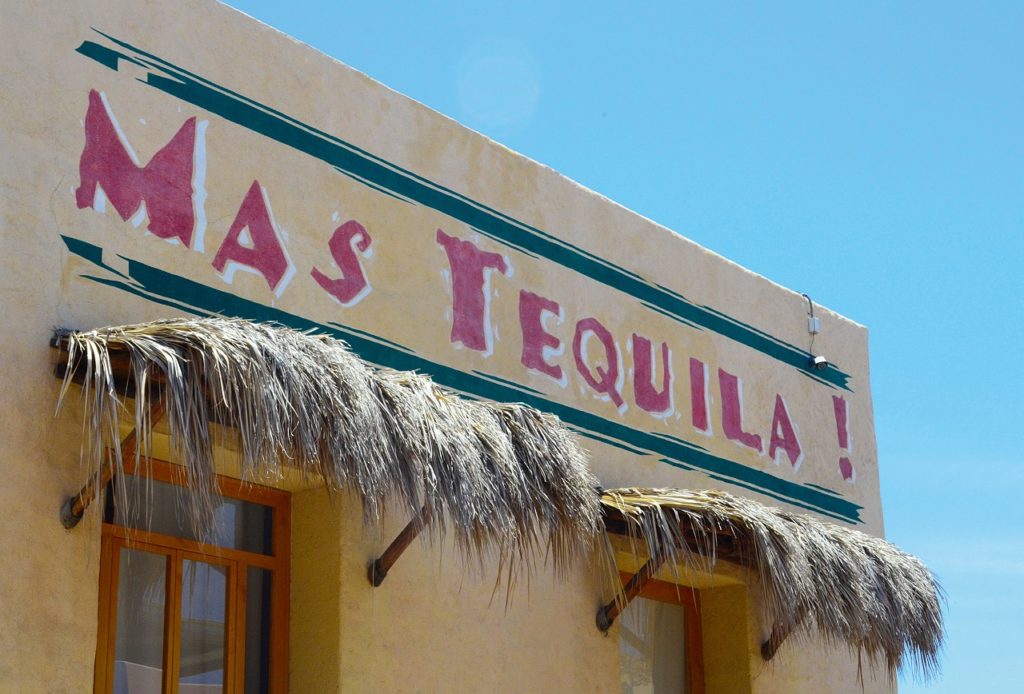Given the changes in the legal framework on cannabis production, the approval in Congress will define the true scope of this industry. Industrial cannabis has 10,000 applications and the global market size will reach $10.6 billion by 2025. There are approximately 20 companies that use cannabis in food and other products, that is why Canada has huge plans to enter this business in Mexico.
Canada is eyeing the legal cannabis business in Mexico


Four months ago, in the Mexican Senate, a Canadian businessman told the congressmen: “Mexico’s location in the world is perfect, the labor costs are perfect, its climate is perfect. Let the private companies expand their business, and do what they know how to do.”
The words of Erick Factor, founder of MYM Nutraceuticals, made clear the shift in the drug debate and also the interests at stake behind the project for the total legalization of cannabis in Mexico. The country could become, in the coming months, the largest market for legal cannabis in the world.
The Hemp.im application provides you with the latest marijuana news and covers wide-ranging topics including hemp and cannabis.
Canadian Senate is interested in Mexico for cannabis business
For months now, the eyes of the big names in the cannabis business have been on the Mexican Senate. Some companies have lobbyists walking the halls of the Upper House hoping to get a slice of a multi-million dollar business. Some have already spoken to a high-profile politician to be the Sherpa to guide them to the promised land. Other groups are scrutinizing the requirements for small producers in an industry that seemed unimaginable a few years ago. Several foreign investors are following the process step by step, especially the ones from Canada, the first country to legalize recreational cannabis and the country with the largest cannabis industry in the world market.
However, while some follow the money, others look suspiciously. Civil society organizations warn that a law tailored to large capitals would vanish the possibility of incorporating small producers and peasants into the legal market. “As it stands now, the bill privileges foreign companies, because a multimillion-dollar investment it is necessary to enter the cannabis market,” said Zara Snapp, the founder of the RIA Institute, dedicated to public policy research. “It’s worrying, we don’t want another extractive industry that exploits the resources and takes the profits,” she added.
In 2018, the Supreme Court of Justice declared unconstitutional five articles of the General Health Law prohibiting the use of cannabis for recreational purposes and gave the legislature one year to create new regulations. Morena – the ruling party after that year’s elections – and the opposition saw the ruling as an opportunity to push for a comprehensive law, which would make Mexico the third country in the world to fully legalize cannabis. The deadline expired last October without lawmakers agreeing to issue the law, which has been criticized for putting up insurmountable entry barriers for small producers.
Mexico – a great country for cannabis cultivation


Ricardo Monreal, Morena’s strong man in the Senate, blamed the impasse on the lack of consensus and the influence of pressure groups. “It’s impressive how many lobbyists are around,” he said. The Supreme Court granted an extension that ends in April, and the Senate, which began sessions last Saturday, is already rushing a bill to be discussed in plenary. Meanwhile, the players involved remain on tenterhooks.
“Mexico is definitely very interesting, the next big event for many cannabis entrepreneurs,” said Erick Factor, the entrepreneur who participated in a Senate forum last October. Factor said that skepticism is understandable, but that there are fair business opportunities for all involved. “I wouldn’t describe my visit as lobbying, it was more about sharing the experience and know-how of our country to give clarity to Mexican legislators,” he added.
“There is a unique opportunity in Mexico to have comprehensive legislation that addresses the issue of cannabis from production to marketing,” said Canopy Growth, the largest Canadian company in the sector in terms of market capitalization. “Canopy Growth is following the development of legislation and regulation in Mexico,” said the company representative, but insisted that “it is still very premature” to analyze the new legal framework. Canopy, which is on the Senate’s list of lobbyists, avoids commenting on ruling and what it has discussed with Mexican lawmakers.
Mexico’s cannabis industry potential
The Canadian industry sees a potential market of $2.25 billion in Mexico that will depend largely on the release of cannabis for recreational use, according to the consulting company Canaccord Genuity. Its analysts believe that the proposal that failed in October offers “feasible, but not ideal” business opportunities. That is because it limited the participation of foreigners to 20% of the capital stock of a company and prevented vertical integration, ie that a single company controls several phases of the production and marketing process.
The consulting company believes that Khiron, a Colombian-Canadian company, is the best positioned to enter the Mexican market. It has experience with regulations in other countries in the region such as Colombia and Uruguay and has former president Vicente Fox (2000-2006) on its board of directors. Khiron is planning to enter the cannabis market in Mexico in the first quarter of this year and is aiming to reach 11.7 million cannabis consumers.
Aurora Cannabis, another Canadian company that announced the purchase of Farmacias Magistrales, the first company to obtain permission to import raw materials with tetrahydrocannabinol (THC) into Mexico, did not answer the requests either. Almost all the interested parties are opting for caution and silence is becoming eloquent. No one wants to risk a legislative process in which many things remain to be decided.
An insight into Colombia’s cannabis laws
The arrival of Canadian capital caused controversy in Colombia, which issued a law, in 2017, to regulate the use and export of medical cannabis. “Khiron and other companies with financial power were always one step ahead,” explained Luis Felipe Cruz, a researcher with the organization De Justicia. “The companies had the money and the experts, even greater technical capacity than the state, and under the table, they dictated how the regulation should be done,” said the Colombian specialist.
“The government did not know how to manage expectations well and did not change anything for the producers in general or in the illegal markets, which are transnational,” he added. Diana Paola Valenzuela, legal director of the Colombian company Anandamida Gardens, said that “there have been obstacles for everyone, even for Canadian funds that financed local companies and had to make their way.”
Some critical voices call the practices of Canadian companies “cannabis colonialism” and others say there is room for all kinds of actors. The challenge for the Mexican Congress is enormous. At stake is guaranteeing the rights of cannabis consumers, changing the course of an anti-drug policy that has plunged the country into the worst crisis of violence in its recent history, delineate the rules for what could become the largest legal cannabis market until now, and achieve a political consensus that resists pressure and interests inside and outside the government coalition.
__
(Featured image by Filip Gielda via Unsplash)
DISCLAIMER: This article was written by a third party contributor and does not reflect the opinion of Hemp.im, its management, staff or its associates. Please review our disclaimer for more information.
This article may include forward-looking statements. These forward-looking statements generally are identified by the words “believe,” “project,” “estimate,” “become,” “plan,” “will,” and similar expressions. These forward-looking statements involve known and unknown risks as well as uncertainties, including those discussed in the following cautionary statements and elsewhere in this article and on this site. Although the Company may believe that its expectations are based on reasonable assumptions, the actual results that the Company may achieve may differ materially from any forward-looking statements, which reflect the opinions of the management of the Company only as of the date hereof. Additionally, please make sure to read these important disclosures.
First published in EL PAIS, a third-party contributor translated and adapted the article from the original. In case of discrepancy, the original will prevail.
Although we made reasonable efforts to provide accurate translations, some parts may be incorrect. Hemp.im assumes no responsibility for errors, omissions or ambiguities in the translations provided on this website. Any person or entity relying on translated content does so at their own risk. Hemp.im is not responsible for losses caused by such reliance on the accuracy or reliability of translated information. If you wish to report an error or inaccuracy in the translation, we encourage you to contact us.



Comments are closed for this post.